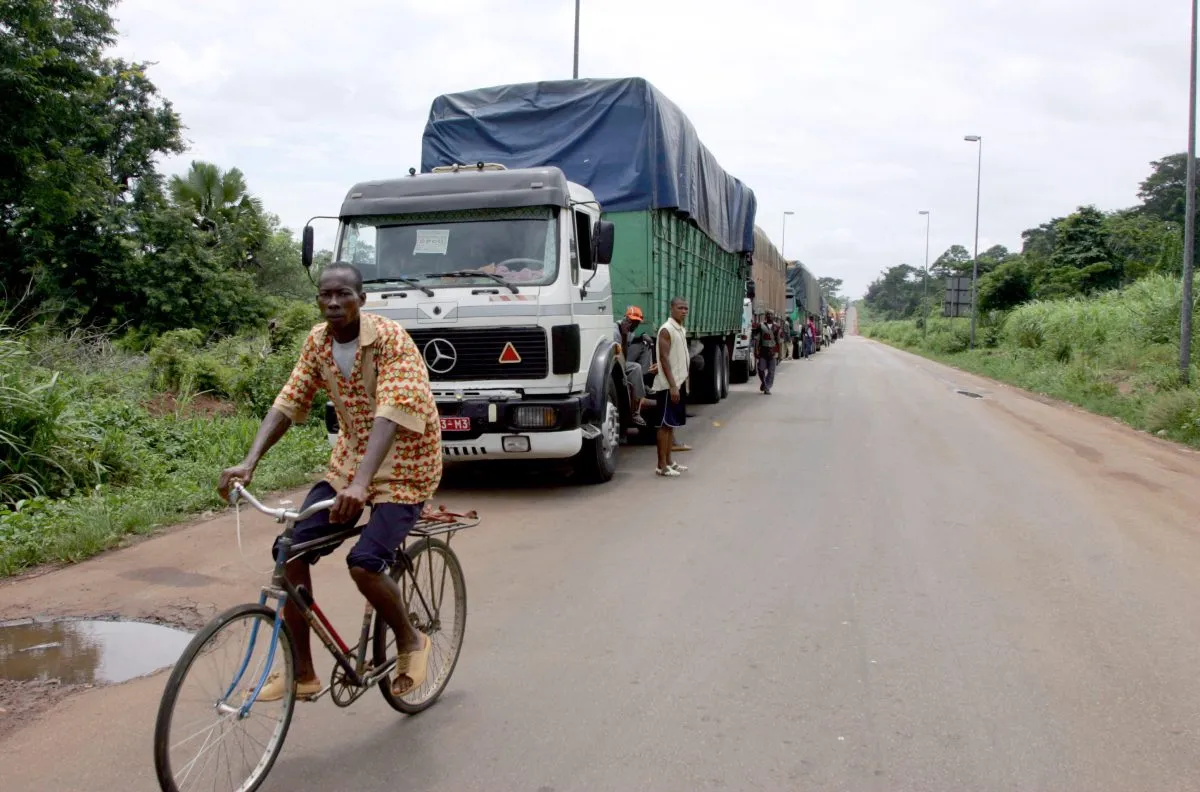This article is part of a series produced in collaboration with the African Development Bank in light of its sixtieth anniversary. Please visit our dedicated portal to read about the Bank's history and its activities on the continent.
The Africa Investment Forum (AIF) held in Morocco this December provided a platform for the African Development Bank and its partners to reaffirm their commitment to investing in regional corridors. Leaders passionately discussed the concrete steps their countries and organisations are taking to enhance regional connectivity, highlighting some of the notable projects that are fostering greater integration across the continent.
Nardos Bekele-Thomas, CEO of AUDA-NEPAD, cited the Chirundu one-stop border post linking Zambia and Zimbabwe as a prime example. This initiative reduced cargo clearance times from over 48 hours in 2022 to under 14 hours in 2024—a remarkable 60% improvement. Similarly, the Cinkansé one-stop border post connecting Burkina Faso and Togo decreased border crossing times from 2-3 days to just 1-2 hours.
“The integrated corridor approach focuses on transport, energy, digital connectivity and industrial hubs, while considering job creation, urban-rural connectivity and climate resilience. When we connect Africa, we empower Africa,” she said during the AIF’s closing ceremony.
Samaila Zubairu, CEO of the African Finance Corporation, expressed optimism about the speedy pace at which deals to enhance connectivity were proceeding from conceptualization to implementation, citing the Lobito corridor in Angola. “The Lobito Corridor is an example of a project for which we signed the MoU just a year ago that scaled very fast,” he said.
Key projects taking shape
The Lobito Corridor, a $10 billion infrastructure project, encompasses rail, road, bridges, telecommunications, energy, and agribusiness developments. Key project partners include the African Development Bank, which has committed about $500 million, the Africa Finance Corporation as the overall Project Developer, and the Development Bank of Southern Africa leading the first project phase.
The corridor is expected to create thousands of jobs and facilitate regional integration across Angola, the Democratic Republic of Congo, and Zambia. Global partners, including the United States and the European Commission, signed a Memorandum of Understanding in October 2023 to mobilise resources for the Lobito Corridor.
Another key project taking shape is the ambitious Abidjan-Lagos Highway Corridor, set to begin construction in 2026. This 1,028-km transnational coastal highway will connect Côte d’Ivoire, Ghana, Togo, Benin, and Nigeria, creating an economic corridor poised to spur regional trade and development.
The project gained significant momentum at the 2022 AIF Market Days, securing $15.6 billion in investment interest. The African Development Bank has already contributed $25 million to fund the preparatory phase of this strategically important corridor.
Upon completion, the highway will feature a four to six-lane carriageway, expanding to eight lanes in Lagos. It will link major economic hubs, including Abidjan, Takoradi, Accra, Lomé, Cotonou, Porto-Novo, and Lagos—areas projected to host 173 million urban residents by 2050. The route between Abidjan and Lagos is home to 75% of commercial activities in West Africa, underscoring the project’s strategic importance.
Notably, the project’s scope extends beyond transportation. The African Development Bank’s sponsored Spatial Development Initiative has identified numerous specific interventions requiring approximately $6.8 billion in investments, spanning sectors from renewable energy to manufacturing and agriculture. These interventions are projected to generate $16 billion in additional economic benefits and create over 60,000 direct and 70,000 indirect jobs.
Connecting Africa to the world
For Africa to unleash its economic potential, it’s not enough for its countries to be well connected to each other; they must also be well connected to the rest of the world, argued Leila Benali, Moroccan Minister of energy transition and sustainable development.
Benali highlighted Morocco’s strategic position as a bridge between Africa and the rest of the world. She stressed that Morocco’s national sustainability strategy seeks to strengthen the country’s role as a key link between Africa, Europe, and the Atlantic Basin, noting that investing in the country’s clean energy infrastructure would help unlock the potential of the broader continent. “Morocco will be a corridor linking Europe and Africa,” she stated.

 Sign in with Google
Sign in with Google 



